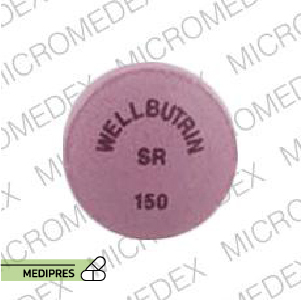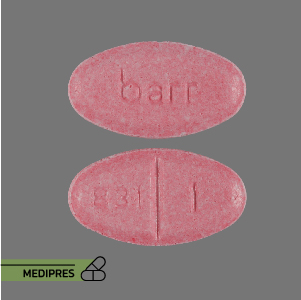
Welireg
23 June, 2023
Winlevi
23 June, 2023Wellbutrin
Generic name: Bupropion
Drug class: Miscellaneous antidepressants
Dosage forms: Immediate-Release Tablet, Extended-Release Tablet
Root of administration: Oral
Dose: 75, 100, 150, 200, 300 mg
Mechanism of action: Wellbutrin is an antidepressant medicine that is thought to work in the brain and nerves on the chemical messengers norepinephrine and dopamine.
Drug usage cases: Wellbutrin XL is used to treat major depressive disorder (MDD) and seasonal affective disorder, and Wellbutrin SR is only used to treat major depressive disorder (MDD). Another brand of bupropion called Zyban is used to help to stop smoking, Wellbutrin is not indicated to help quit smoking.
Drug contra indications: Do not use Wellbutrin if you have used an MAO inhibitor in the past 14 days. A dangerous drug interaction could occur. MAO inhibitors include isocarboxazid, linezolid, methylene blue injection, phenelzine, rasagiline, selegiline, tranylcypromine, and others. You should not take Wellbutrin if you are allergic to bupropion, or if you have:
a seizure disorder; an eating disorder such as anorexia or bulimia; or if you have suddenly stopped using alcohol, seizure medications, or a sedative (such as Xanax, Valium, Fiorinal, Klonopin, and others). Do not use an MAO inhibitor within 14 days before or 14 days after you take bupropion. A dangerous drug interaction could occur. MAO inhibitors include isocarboxazid, linezolid, phenelzine, rasagiline, selegiline, and tranylcypromine. Do not take Wellbutrin to treat more than one condition at a time. If you take bupropion for depression, do not also take this medicine to quit smoking. Wellbutrin may cause seizures, especially if you have certain medical conditions or use certain drugs. Tell your doctor about all of your medical conditions and the drugs you use. To make sure this medicine is safe for you, tell your doctor if you have ever had:
a head injury, seizures, or brain or spinal cord tumor; narrow-angle glaucoma; heart disease, high blood pressure, or a heart attack; diabetes; kidney or liver disease (especially cirrhosis); or depression, bipolar disorder or other mental illness; or if you drink alcohol. Some young people have thoughts about suicide when first taking an antidepressant. Your doctor will need to check your progress at regular visits while you are using Wellbutrin. Your family or other caregivers should also be alert to changes in your mood or symptoms. Ask your doctor about any risk.
Side effects: Get emergency medical help if you have any of these signs of an allergic reaction to Wellbutrin: (hives, itching, fever, swollen glands, difficult breathing, swelling in your face or throat) or a severe skin reaction (fever, sore throat, burning eyes, skin pain, red or purple skin rash with blistering and peeling). Report any new or worsening symptoms to your doctor, such as: mood or behavior changes, anxiety, depression, panic attacks, trouble sleeping, or if you feel impulsive, irritable, agitated, hostile, aggressive, restless, hyperactive (mentally or physically), or have thoughts about suicide or hurting yourself. Call your doctor at once if you have:
a seizure (convulsions); confusion, unusual changes in mood or behavior; blurred vision, tunnel vision, eye pain or swelling, or seeing halos around lights; fast or irregular heartbeats; or a manic episode – racing thoughts, increased energy, reckless behavior, feeling extremely happy or irritable, talking more than usual, severe problems with sleep.
Warnings: You should not take Wellbutrin if you have seizures, an eating disorder, or if you have suddenly stopped using alcohol, seizure medications, or sedatives. If you take Wellbutrin for depression, do not also take Zyban to quit smoking. Do not use Wellbutrin if you have used an MAO inhibitor in the past 14 days. A dangerous drug interaction could occur. MAO inhibitors include isocarboxazid, linezolid, methylene blue injection, phenelzine, rasagiline, selegiline, or tranylcypromine. Wellbutrin may cause seizures, especially in people with certain medical conditions or when using certain drugs. Tell your doctor about all of your medical conditions and the drugs you use. Some young people have thoughts about suicide when first taking an antidepressant. Your doctor will need to check your progress at regular visits while you are using this medicine. Your family or other caregivers should also be alert to changes in your mood or symptoms. Report any new or worsening symptoms to your doctor, such as: mood or behavior changes, anxiety, panic attacks, trouble sleeping, or if you feel impulsive, irritable, agitated, hostile, aggressive, restless, hyperactive (mentally or physically), more depressed, or have thoughts about suicide or hurting yourself.
Use during pregnancy or breastfeeding: Ask your doctor about taking Wellbutrin if you are pregnant. It is not known whether bupropion will harm an unborn baby. However, you may have a relapse of depression if you stop taking your antidepressant. Tell your doctor right away if you become pregnant. Do not start or stop taking bupropion without your doctor’s advice. If you are pregnant, your name may be listed on a pregnancy registry to track the effects of bupropion on the baby. It may not be safe to breastfeed while using Wellbutrin.



